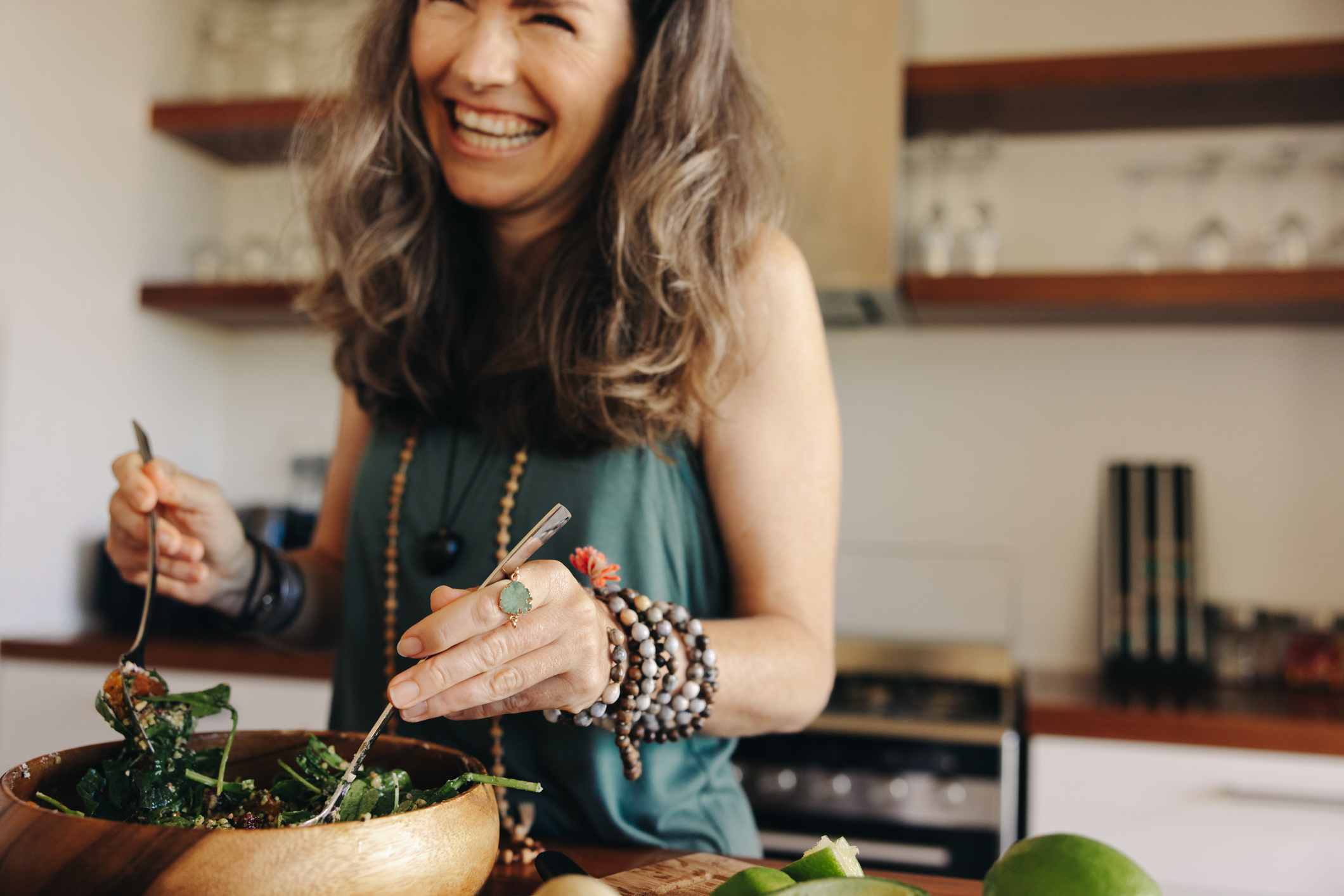Get Easy Health Digest™ in your inbox and don’t miss a thing when you subscribe today. Plus, get the free bonus report, Mother Nature’s Tips, Tricks and Remedies for Cholesterol, Blood Pressure & Blood Sugar as my way of saying welcome to the community!
The vitamin to help women avoid a fatal arterial disease

Sometimes you don’t need “hard science” to tell you that something makes sense.
Sometimes, an observational study is convincing enough to be considered a valid source of evidence.
And while it may not offer “cause and effect” proof, an observational study, when done well, gives us enough information to convince us that changing our behavior could benefit our health.
This is especially true when it comes to what we eat.
I’ve often said here that “food is medicine.” Well, here’s an observational study that has convinced me eating a little differently will add some years to my life…
Women need more vitamin K1 to keep arteries flexible
A study at Australia’s Edith Cowan University has shown that eating just an extra cup of leafy greens and cruciferous vegetables each day could save your life.
These vegetables, including spinach, kale, and broccoli, are rich in vitamin K1.
The researchers investigated whether eating more vitamin K1 was linked to better heart and blood vessel health in older women.
Older women were chosen as subjects because they have a unique risk for atherosclerotic vascular disease (ASVD), a type of cardiovascular disease where plaque builds up inside your arteries, narrowing them and restricting blood flow.
This is one reason that women are known to be at greater risk of heart attack and stroke than men. Hormonal factors also contribute to this increased risk level.
The study participants were 1,436 women, who averaged 75 years of age. A food questionnaire assessed their vitamin K1 levels at the start of the study.
Then, the researchers followed them for 14.5 years using hospital and death records.
In general, women who ate more vitamin K1 had thinner carotid artery walls, reflecting less early-stage atherosclerosis.
More specifically, women with the highest K1 intake (120mcg) had a 43% lower risk of dying from ASVD.
Are you getting enough K1?
If you’re following the recommended daily guidelines, you’re probably not getting that 120mcg of K1 that lowered the risk of dying from ASVD.
The recommended daily intake of K1 in the U.S. is only 90mcg for adult females.
In Australia and New Zealand, it’s even lower: only 60mcg for females.
But you know what? It doesn’t take much to get to that 120mcg mark. Let me show you…
- A cup of raw kale provides 472mcg
- A cup of raw spinach offers 145mcg
- Just half a cup of cooked broccoli provides 110mcg
- A half-cup of cooked Brussels sprouts contains 109mcg.
- A half-cup of cooked cabbage provides 82mcg.
The point is, you won’t have to try too hard to get to that goal of eating 120mcg of K1 per day.
The study authors noted they did not investigate the other vitamin K component — vitamin K2 — even though it may impact heart health, only because estimating intake and availability of vitamin K2 is difficult to determine, since intestinal bacteria are involved in the synthesis of K2.
But if you’d like to know more about this form of vitamin K (found in much different food sources than K1), check out how vitamin K2 fights a common contributor of unhealthy aging — calcification.
Editor’s note: What do you really know about stroke? The truth is, only 10% of stroke survivors recover almost completely, and all doctors can offer is what to do after a stroke occurs. That’s unacceptable considering 80% of strokes are preventable! Click here to discover how to escape The Stroke Syndrome: 5 Signs it’s Stalking You — Plus the Hidden Causes and Preventive Measures You’ve Never Heard About!
Sources:
An extra cup of leafy greens each day reduces heart disease death risk — New Atlas
Higher vitamin K1 intakes are associated with lower subclinical atherosclerosis and lower risk for atherosclerotic vascular disease-related outcomes in older women — European Journal of Nutrition














